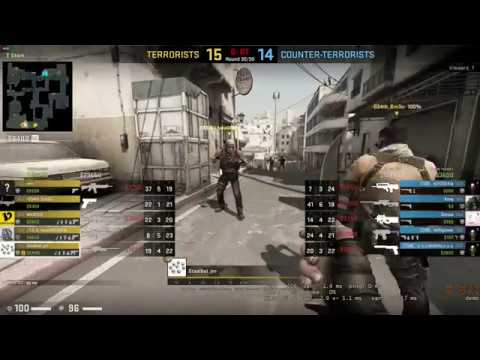Counter-Strike: Global Offensive (CS:GO) stands tall as one of the most iconic and competitive first-person shooter (FPS) games in the esports realm. At its core lies a sophisticated scoring system that determines the outcome of matches. Understanding this system is crucial for both players and spectators to grasp the nuances of gameplay. In this article, we delve deep into the intricacies of the CS:GO scoring system, exploring its components, significance, and impact on the overall gaming experience.
- The Objective of CS:GO: CS:GO pits two teams against each other: the Terrorists and the Counter-Terrorists. The primary objective varies depending on the game mode but often involves planting or defusing a bomb, rescuing or holding hostages, or eliminating the opposing team. The scoring system reflects the accomplishment of these objectives.
- Points Allocation: Points in CS:GO are awarded for various in-game actions, including:
- Killing opponents: Players earn points for eliminating enemies, with additional rewards for headshots and consecutive kills.
- Planting or defusing the bomb: Significant points are granted to players involved in bomb-related objectives, encouraging strategic gameplay.
- Rescuing or holding hostages: In hostage rescue missions, points are awarded for successfully rescuing hostages or preventing their rescue as defenders.
- Round and match victories: Winning rounds and matches contribute significantly to the overall score, emphasizing the importance of teamwork and tactical prowess.
- Round Structure: CS:GO matches consist of multiple rounds, typically played in a best-of-30 format for competitive matches. Each round has a time limit and concludes when one of the following outcomes is achieved:
- Bomb explosion: Terrorists win if they successfully plant and detonate the bomb, while Counter-Terrorists win by defusing it.
- Elimination: If one team eliminates all members of the opposing team before the round timer expires, they win the round.
- Round timer expiration: If neither team achieves victory conditions within the time limit, the round ends in a draw.
- Economy System and Round Loss Bonus: A fundamental aspect of CS:GO’s scoring system is the economy, which governs players’ ability to purchase weapons, armor, and utilities. Teams earn money based on their performance in each round, with bonuses for round victories and bomb-related accomplishments. Conversely, losing teams receive a round loss bonus, enabling them to stay competitive in subsequent rounds despite setbacks.
- Overtime: In the event of a tie at the end of regulation play, CS:GO features overtime periods to determine the winner. Overtime consists of additional rounds with adjusted rules, often employing a MR3 (Max Rounds 3) format where teams switch sides after each round. Overtime continues until one team secures a decisive lead, ensuring a thrilling conclusion to closely contested matches.
- Impact on Gameplay Dynamics: The CS:GO scoring system profoundly influences gameplay dynamics by incentivizing strategic decision-making, teamwork, and individual skill. Players must balance aggressive play with tactical caution to secure round victories and maximize point acquisition. Moreover, the economy system adds a layer of complexity, requiring teams to manage resources efficiently for sustained success.
- Spectator Experience and Esports Significance: Understanding the CS:GO scoring system enhances the spectator experience, allowing viewers to appreciate the strategic depth and competitive intensity of professional matches. Esports tournaments, such as the renowned Intel Extreme Masters (IEM) and ESL One events, showcase top-tier CS:GO action where teams vie for victory using masterful tactics and precise execution.
Conclusion:
The CS:GO scoring system serves as the backbone of competitive gameplay, shaping the flow and outcome of matches through its multifaceted approach to point allocation, round structure, and economy management. Mastery of this system is essential for players aiming to excel in the game and for spectators seeking deeper engagement with the esports scene. As CS:GO continues to captivate audiences worldwide, its scoring mechanics remain integral to its enduring appeal and competitive legacy.

